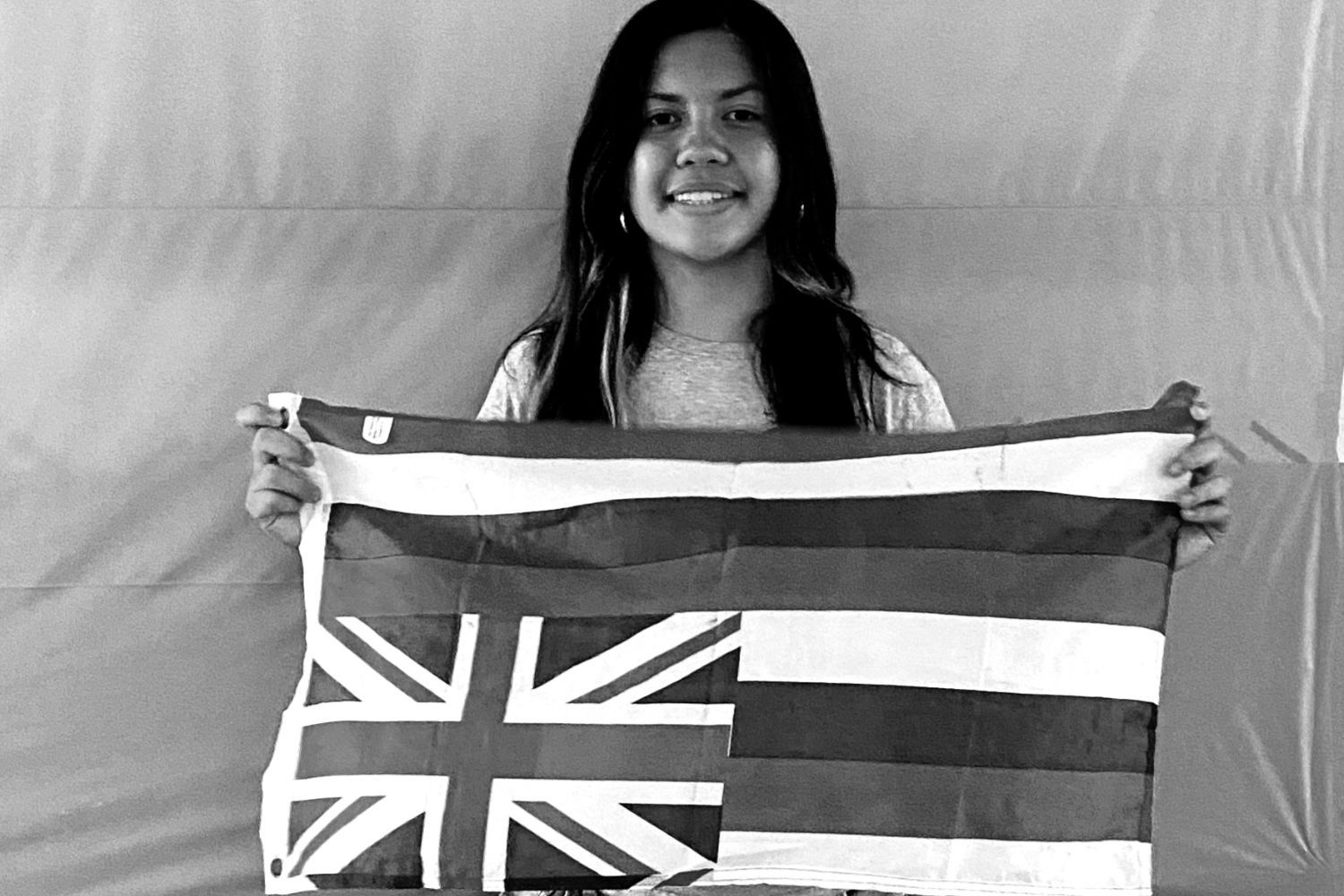We Are America
Protect Our Aina
By Hailey (Kehau)

Robert Louis Stevenson Middle School, Honolulu, Hawaii
My name is Hailey Kehaulani Valdez, and I am a Native Hawaiian who lives on the island of 'Oahu. It is more commonly known to outsiders as a tourist destination or the 50th state. In truth, we are illegally occupied, and we are not American citizens. I remember when I was younger, I was brought up to always stand up for what is right and to protect our Aina, which in Hawai'ian means "land."
When I was in the 3rd grade, I went to my first protest on the subject of banning the Thirty Meter Telescope (TMTs). The telescope was going to be put on Mauna Kea, which was the mountain we needed to protect as indigenous people. The mountain is very important to us for cultural and spiritual reasons.
When I stepped onto the road by Ala Moana, I saw thousands, if not more than thousands, of people. I was nervous at first because it was my first time doing this, but I also felt empowered because I now could make a change to the issue. And if I don’t make a change to the issue, at least they heard our calls for stopping it. As the protest started, we did something called "protocol,” which is a series of chants (also known as Oli’s) to start off the walk and to honor our ancestors.
As the protest started, I saw kids my age chanting and yelling to start off the walk. Things like “Kū Kia'i Mauna,” which translates to “Guardians of the Mountains,” and “I ku mau mau!” which translates to “Stand Together!” I felt empowered; people got to hear us and hear the issue. This is true Hawai'i, before tourists, military and the US government, Hawai'i had its own government and kingdom of its own. Now it has turned into a tourist trap where people come from all over the continent to have a vacation and to watch other’s appropriate our culture as a form of entertainment. As we started getting closer to the Iolani Palace (that is where our destination ends), I started chanting first too, saying things like “Kū Kia'i Mauna!” over and over again until I felt that I was heard. And I was heard; we were heard.
From this protest, I learned to stick up for what is right, to always try to preserve our culture and traditions, and to protect our Aina. I had seen how it impacted us here on 'Oahu, and more so on the big island where Mauna Kea really is. We weren’t doing it for "fun.” We were doing it to make an impact and to make a change. It was a great learning experience and a wake-up call for the tourists that were watching. It showed them that this is the real Aloha spirit, saving our ancient grounds; it showed that we are suppressed and that America is constantly trying to make us quiet.
© Hailey (Kehau). All rights reserved. If you are interested in quoting this story, contact the national team and we can put you in touch with the author’s teacher.